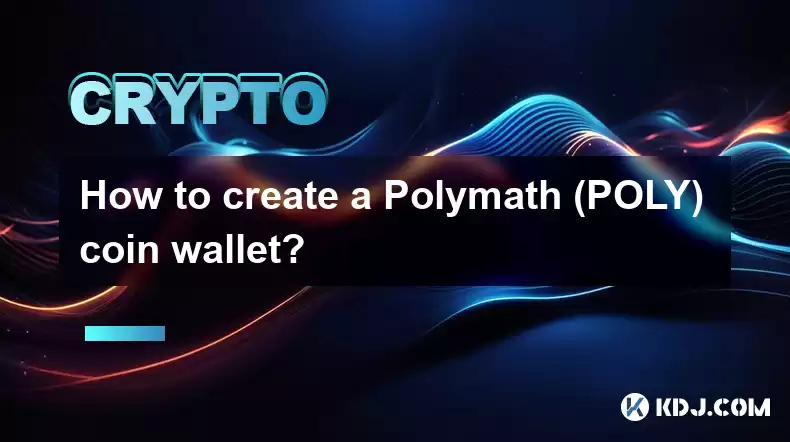-
 Bitcoin
Bitcoin $117700
-1.00% -
 Ethereum
Ethereum $4458
-3.91% -
 XRP
XRP $3.119
0.14% -
 Tether USDt
Tether USDt $1.001
-0.02% -
 BNB
BNB $836.6
-1.56% -
 Solana
Solana $189.5
-3.90% -
 USDC
USDC $0.9998
-0.02% -
 Dogecoin
Dogecoin $0.2335
1.29% -
 Cardano
Cardano $0.9642
1.51% -
 TRON
TRON $0.3539
-1.19% -
 Hyperliquid
Hyperliquid $47.41
-1.84% -
 Chainlink
Chainlink $21.92
-3.28% -
 Stellar
Stellar $0.4286
-0.23% -
 Sui
Sui $3.724
-3.29% -
 Bitcoin Cash
Bitcoin Cash $594.8
-0.78% -
 Ethena USDe
Ethena USDe $1.001
0.04% -
 Hedera
Hedera $0.2501
-2.06% -
 Avalanche
Avalanche $23.96
-4.87% -
 Litecoin
Litecoin $119.0
-2.32% -
 Toncoin
Toncoin $3.473
0.82% -
 UNUS SED LEO
UNUS SED LEO $9.596
0.17% -
 Shiba Inu
Shiba Inu $0.00001301
-0.39% -
 Uniswap
Uniswap $11.03
-0.25% -
 Polkadot
Polkadot $3.935
-2.62% -
 Dai
Dai $1.000
0.01% -
 Bitget Token
Bitget Token $4.564
-1.76% -
 Cronos
Cronos $0.1512
-4.11% -
 Ethena
Ethena $0.7306
-1.09% -
 Pepe
Pepe $0.00001087
-2.68% -
 Aave
Aave $300.2
-4.00%
How to create a Polymath (POLY) coin wallet?
To create a Polymath (POLY) wallet, choose a suitable wallet platform based on your security and convenience preferences, install the wallet on your device, and follow the prompts to create a new wallet and add the POLY token to it.
Dec 26, 2024 at 03:18 am

Key Points
- Understanding the Nature of Polymath (POLY) and Cryptocurrency Wallets
- Selecting a Suitable Wallet Platform
- Creating a New Polymath (POLY) Wallet
- Funding and Managing Your Polymath (POLY) Wallet
- Safeguarding Your Polymath (POLY) Assets
- Troubleshooting Common Wallet Issues
- Frequently Asked Questions (FAQs)
How to Create a Polymath (POLY) Coin Wallet
1. Understanding the Nature of Polymath (POLY) and Cryptocurrency Wallets
- Polymath (POLY) is a security token platform built on the Ethereum blockchain designed to facilitate the creation and management of digital securities.
- Cryptocurrency wallets are digital storage solutions designed to hold, send, and receive cryptocurrencies like Polymath (POLY).
2. Selecting a Suitable Wallet Platform
- Hardware Wallets: Physical devices that provide secure offline storage, e.g., Ledger Nano, Trezor.
- Software Wallets: Applications installed on computers or mobile devices that offer flexibility and convenience, e.g., MetaMask, Trust Wallet.
- Online Wallets: Hosted by third-party providers and accessed via a web interface, e.g., Coinbase, Binance.
3. Creating a New Polymath (POLY) Wallet
For Hardware Wallets:
- Connect your hardware wallet to your computer.
- Create a new wallet and follow the instructions to set a unique PIN.
- Install the Polymath (POLY) app on your wallet.
For Software Wallets:
- Download and install a reputable software wallet.
- Create a new wallet and write down your recovery phrase.
- Add Polymath (POLY) to your wallet by selecting "Add Token" and entering the token's contract address.
4. Funding and Managing Your Polymath (POLY) Wallet
Depositing POLY:
- Obtain Polymath (POLY) through an exchange or other acquisition method.
- Send the POLY to your wallet address displayed in your wallet's interface.
Managing Your Balance:
- Monitor your POLY balance within your wallet.
- Use the wallet to send, receive, and track transactions.
- Keep your recovery phrase or private key safe and secure.
5. Safeguarding Your Polymath (POLY) Assets
- Use Strong Security Protocols: Create robust passwords and enable two-factor authentication.
- Enable Hardware Security: Use a hardware wallet for the most secure storage option.
- Avoid Phishing Scams: Never share your private key or recovery phrase with anyone.
- Keep Your Software Up-to-Date: Ensure your wallet software is updated regularly to fix vulnerabilities.
6. Troubleshooting Common Wallet Issues
- Forgotten Password: If you forget your password, you can reset it using your recovery phrase or private key.
- Lost Wallet: If you lose your hardware wallet, you can restore your assets using your recovery phrase.
- Stuck Transactions: If your transactions are stuck, try increasing the gas fee or waiting for network congestion to subside.
FAQs
Q: Can I use the same wallet for multiple cryptocurrencies?
A: Yes, many wallets support multiple cryptocurrencies, including Polymath (POLY).
Q: Are all cryptocurrency wallets safe?
A: While cryptocurrency wallets are generally secure, it is crucial to prioritize security by using reputable platforms and practicing secure habits.
Q: Where can I buy Polymath (POLY)?
A: You can purchase Polymath (POLY) on cryptocurrency exchanges such as Binance, Coinbase, and Gemini.
Disclaimer:info@kdj.com
The information provided is not trading advice. kdj.com does not assume any responsibility for any investments made based on the information provided in this article. Cryptocurrencies are highly volatile and it is highly recommended that you invest with caution after thorough research!
If you believe that the content used on this website infringes your copyright, please contact us immediately (info@kdj.com) and we will delete it promptly.
- Kazakhstan's Crypto Leap: Bitcoin ETF and Central Asia's Digital Finance Future
- 2025-08-13 12:45:19
- BlockDAG Presale Blazes Past $371M: Fundraising Frenzy Fuels Crypto Sensation
- 2025-08-13 13:05:21
- Meme Coins: Chasing the 2025 Surge – Which Will Moonshot?
- 2025-08-13 10:25:23
- Bitcoin's Wild Ride: Rally, Pullback, and What's Next
- 2025-08-13 10:25:23
- Bitcoin, Bitmax, and Institutional Demand: A New Era of Crypto Investment
- 2025-08-13 10:45:12
- Solana, ROAM, and Airdrops: What's the Buzz in 2025?
- 2025-08-13 11:35:13
Related knowledge

How to purchase Aragon (ANT)?
Aug 09,2025 at 11:56pm
Understanding Aragon (ANT) and Its PurposeAragon (ANT) is a decentralized governance token that powers the Aragon Network, a platform built on the Eth...

Where to trade Band Protocol (BAND)?
Aug 10,2025 at 11:36pm
Understanding the Role of Private Keys in Cryptocurrency WalletsIn the world of cryptocurrency, a private key is one of the most critical components o...

What is the most secure way to buy Ocean Protocol (OCEAN)?
Aug 10,2025 at 01:01pm
Understanding Ocean Protocol (OCEAN) and Its EcosystemOcean Protocol (OCEAN) is a decentralized data exchange platform built on blockchain technology,...

How to invest in Kyber Network Crystal v2 (KNC)?
Aug 12,2025 at 05:21pm
Understanding Kyber Network Crystal v2 (KNC)Kyber Network is a decentralized liquidity hub built on the Ethereum blockchain that enables instant token...

Where can I buy UMA (UMA)?
Aug 07,2025 at 06:42pm
Understanding UMA and Its Role in Decentralized FinanceUMA (Universal Market Access) is an Ethereum-based decentralized finance (DeFi) protocol design...

How to sell my Ren (REN) tokens?
Aug 13,2025 at 11:35am
Understanding REN Tokens and Their Role in Decentralized FinanceREN is an ERC-20 token that powers the Ren protocol, a decentralized interoperability ...

How to purchase Aragon (ANT)?
Aug 09,2025 at 11:56pm
Understanding Aragon (ANT) and Its PurposeAragon (ANT) is a decentralized governance token that powers the Aragon Network, a platform built on the Eth...

Where to trade Band Protocol (BAND)?
Aug 10,2025 at 11:36pm
Understanding the Role of Private Keys in Cryptocurrency WalletsIn the world of cryptocurrency, a private key is one of the most critical components o...

What is the most secure way to buy Ocean Protocol (OCEAN)?
Aug 10,2025 at 01:01pm
Understanding Ocean Protocol (OCEAN) and Its EcosystemOcean Protocol (OCEAN) is a decentralized data exchange platform built on blockchain technology,...

How to invest in Kyber Network Crystal v2 (KNC)?
Aug 12,2025 at 05:21pm
Understanding Kyber Network Crystal v2 (KNC)Kyber Network is a decentralized liquidity hub built on the Ethereum blockchain that enables instant token...

Where can I buy UMA (UMA)?
Aug 07,2025 at 06:42pm
Understanding UMA and Its Role in Decentralized FinanceUMA (Universal Market Access) is an Ethereum-based decentralized finance (DeFi) protocol design...

How to sell my Ren (REN) tokens?
Aug 13,2025 at 11:35am
Understanding REN Tokens and Their Role in Decentralized FinanceREN is an ERC-20 token that powers the Ren protocol, a decentralized interoperability ...
See all articles

























































































